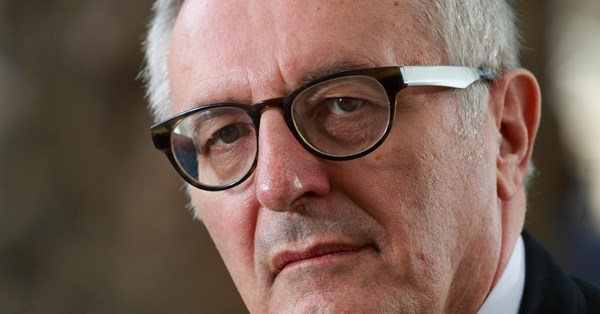WE MAY have reached peak John Gray: the philosopher’s latest jeremiad, in The New Statesman, contains a sentence that sums up an important strain of his thinking: “Nude sunbathing — one of the fads of the new Nietzscheans — may be tricky in the irradiated dusk of a nuclear winter.”
This reminds me of an excellent Northern Irish joke about a Paisleyite preacher who prophesies that there will be “weeping and gnashing of teeth”. An elderly lady asks about the people who have lost their teeth. The preacher shouts back down at the sinner: “Teeth will be provided!”
Gray’s target, here, as always, is optimism. I was going to write “facile optimism”, but I think he’d regard that as a tautology. “The fundamental fact of the age is the passing of liberal humanism, whose dwindling adherents grimly hang on to their mouldering creed for fear of something worse,” he wrote earlier in the essay, and went on to paraphrase Tom Holland: “Modern liberal values are a by-product of a movement led by a charismatic Jewish prophet that upended the values of the Greco-Roman world . . . woke hyper-liberalism is not an assault on Christianity but an impoverished and extreme version of it. Emptied of Jesus’s gospel of forgiveness and Augustine’s acceptance of original sin, woke is a religion of merciless punishment of anyone who refuses to bow to the latest fashion in victimhood.”
Augustine’s acceptance of original sin? Recognition would be the better term. “Acceptance” makes sense only in the Kübler-Ross sense.
Augustine believed that unbaptised infants were with justice condemned to eternal conscious torment in hell. If you’re looking for a religion of merciless punishment, that’s a better candidate than woke.
But amid the confusing and apocalyptic denunciations — teeth will be provided! — there is a serious pessimist’s defence of Christianity against secular humanism: “The irreplaceable value of Judaeo-Christian religion is that it taught its practitioners how to live with insoluble dilemmas. So, too, did pagan tragic art. . . Unless the sense of reality preserved in these traditions can somehow be retrieved, the West is destined to stumble from one fantasy to another.”
Are the present merchants of Christian revivalism any more realistic than the humanists they attack? If the test is that they should teach people to live with insoluble dilemmas, they fail. On the contrary, what is on offer from people such as Rod Dreher is Christianity as a solution to all dilemmas. Dreher is interesting in this context because he is compelled to believe in some form of pure Christianity, untainted by human sin: this has led him from Evangelical Christianity to Roman Catholicism, then to Orthodoxy, and so to shilling for Putin and Trump. Live not by lies, indeed (to quote the title of his book).
ALL these currents of thought can broadly be called “post-liberal”, but it is a mistake to see them as mainly political. This is partly because the liberal progressive post- war order is collapsing, whatever the intellectuals may think, despite the temptation for all intellectuals to talk as if they were in charge of the processes that they explain. More important is that — as Gray sees — the real change that we are talking about is social or anthropological, and that politics grows out of that. If riches and choice were what humans were made for, Elon Musk would be the happiest man alive, and no one, not even Musk, thinks that he is.
The opposition between Christianity and progress may not be the one that matters. There are many alternatives to a belief in progress, whether they are religious, such as Islam and Hinduism, or the kind of fascist nihilism gaining ground in the United States at the moment. What distinguishes Christianity is that it regards as insoluble a dilemma invisible to outsiders. Christians, I think, must feel the contradiction between their faith that every human is loved by God for themselves, and the knowledge that all of us must and do treat others as means to our ends. One solution is Augustine’s: we all deserve damnation and eternal conscious torment, even if some of us are saved. Another is the humanist’s, in which no one is truly wicked in their heart. That is more easily argued against, but neither is satisfactory.
The Christian imagination is haunted by a perfection that we can almost touch but never grasp. But that’s only one way to see the world. It is perfectly possible to be a realist without that sense or hope; indeed, it might be more realistic.

















